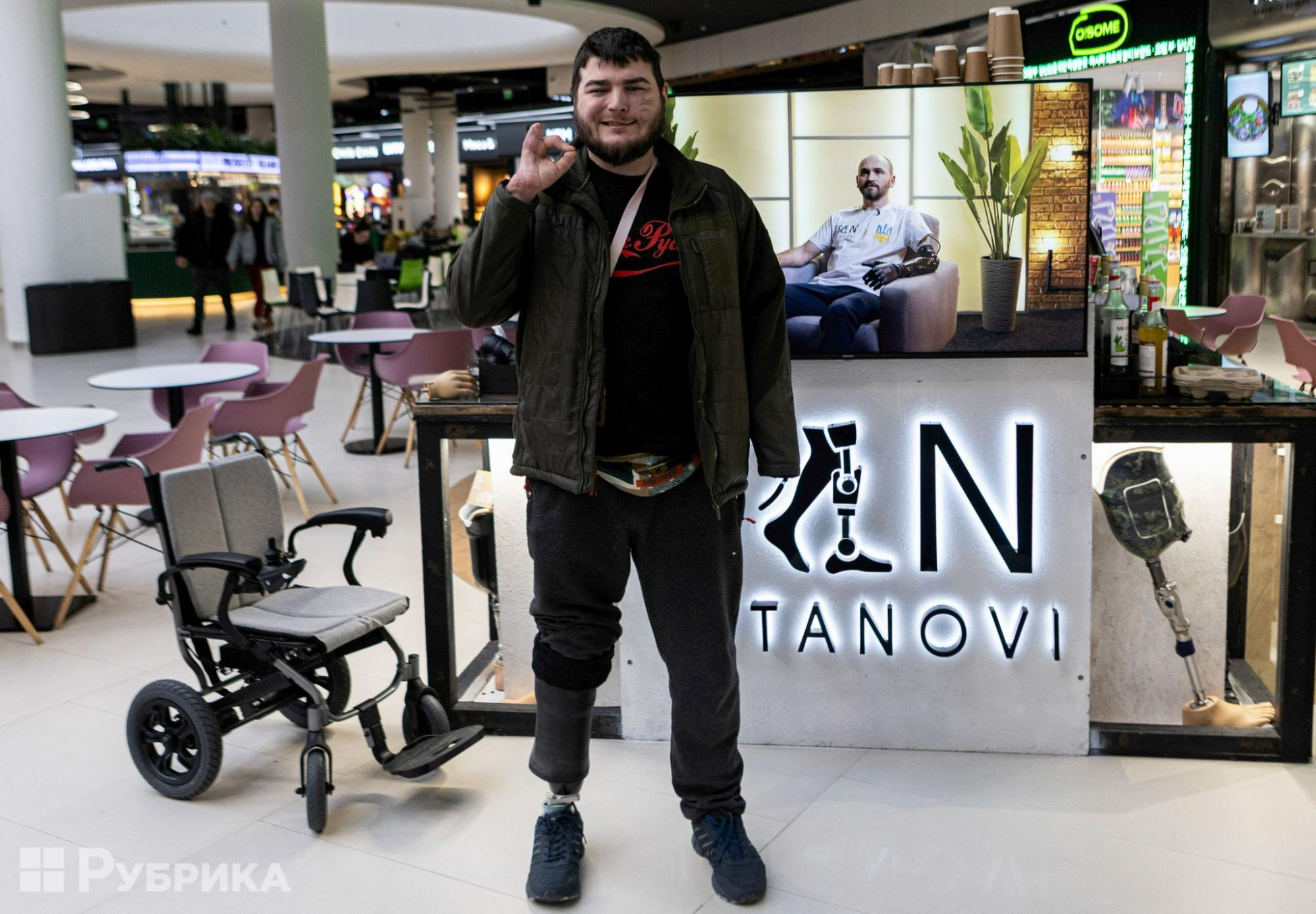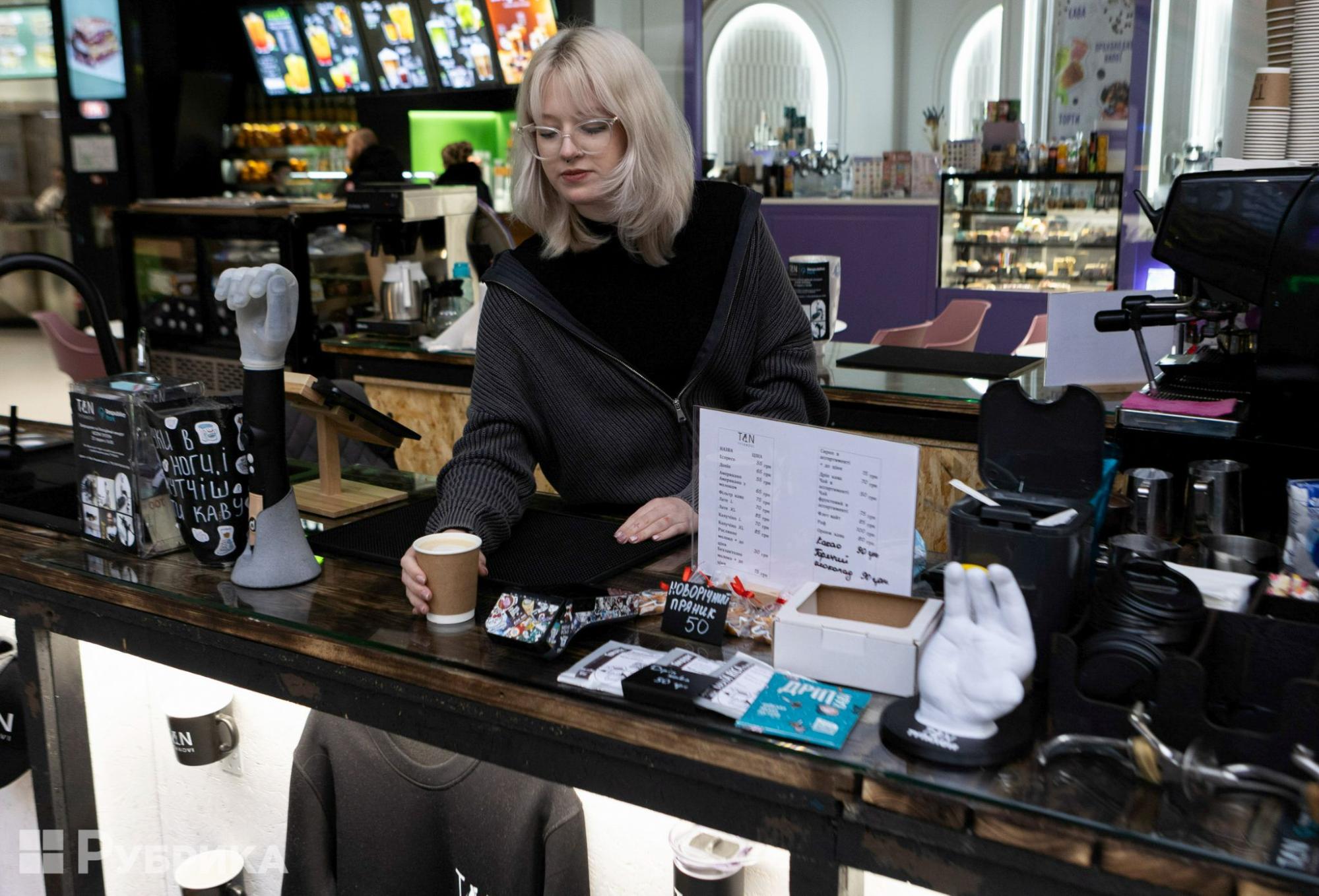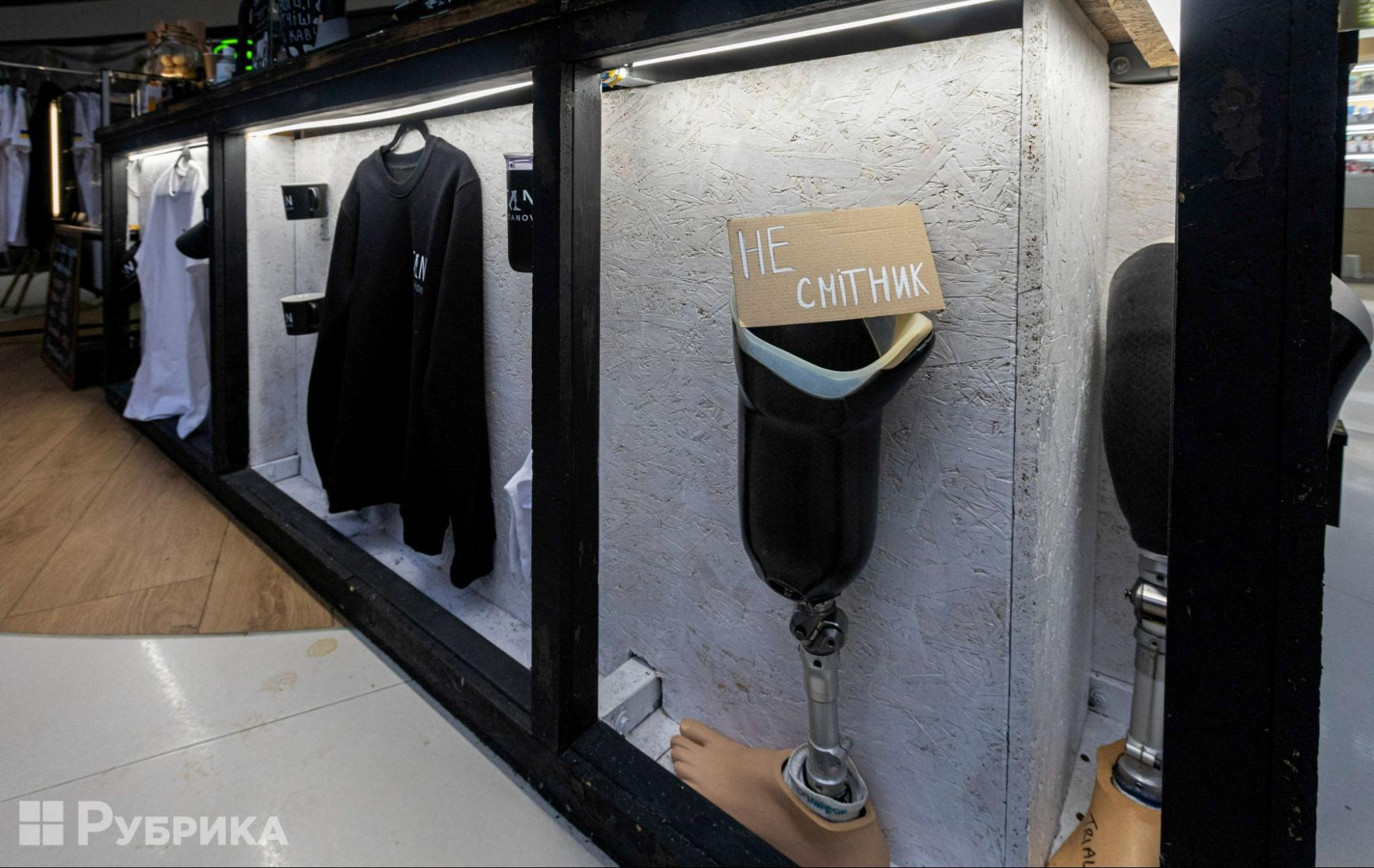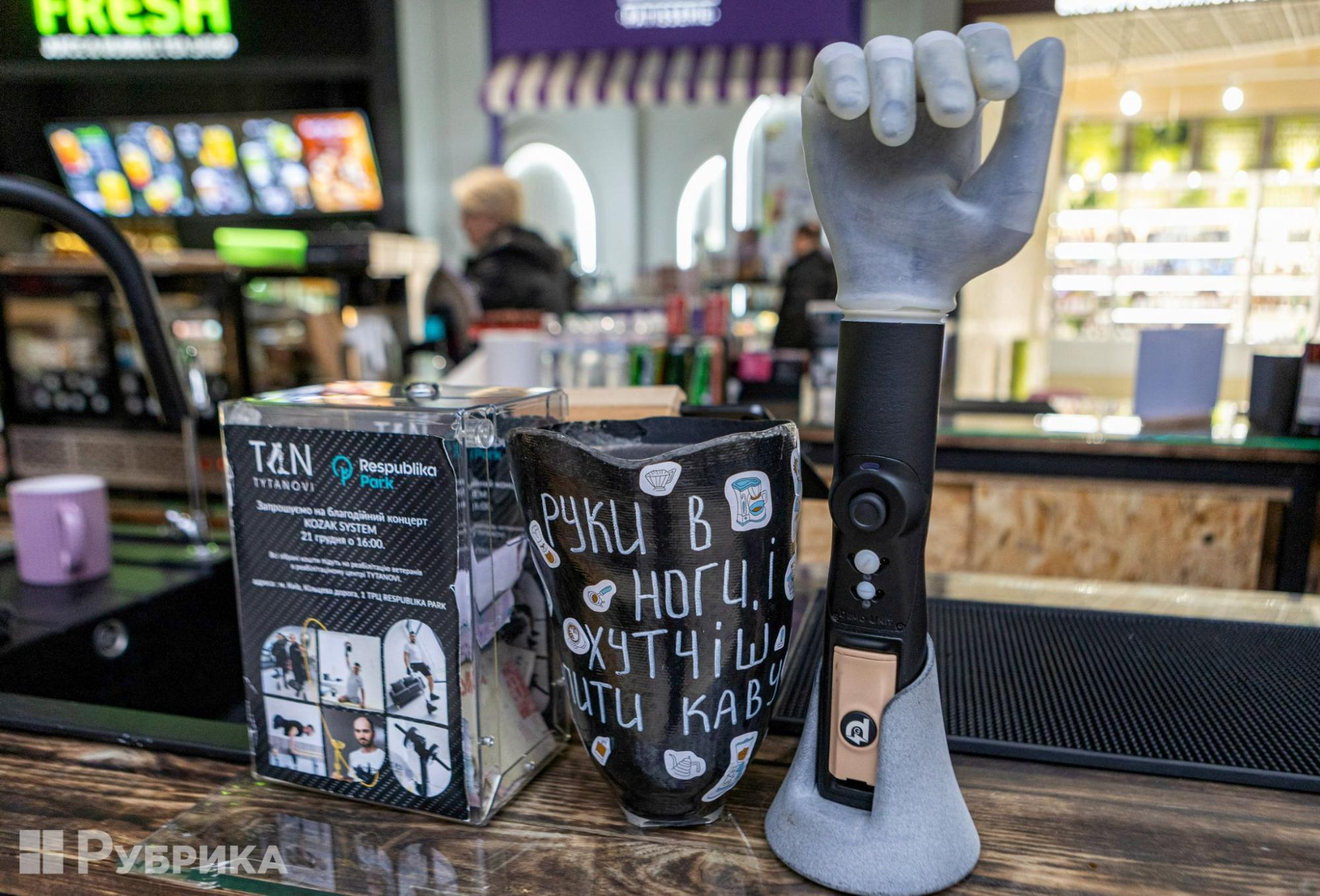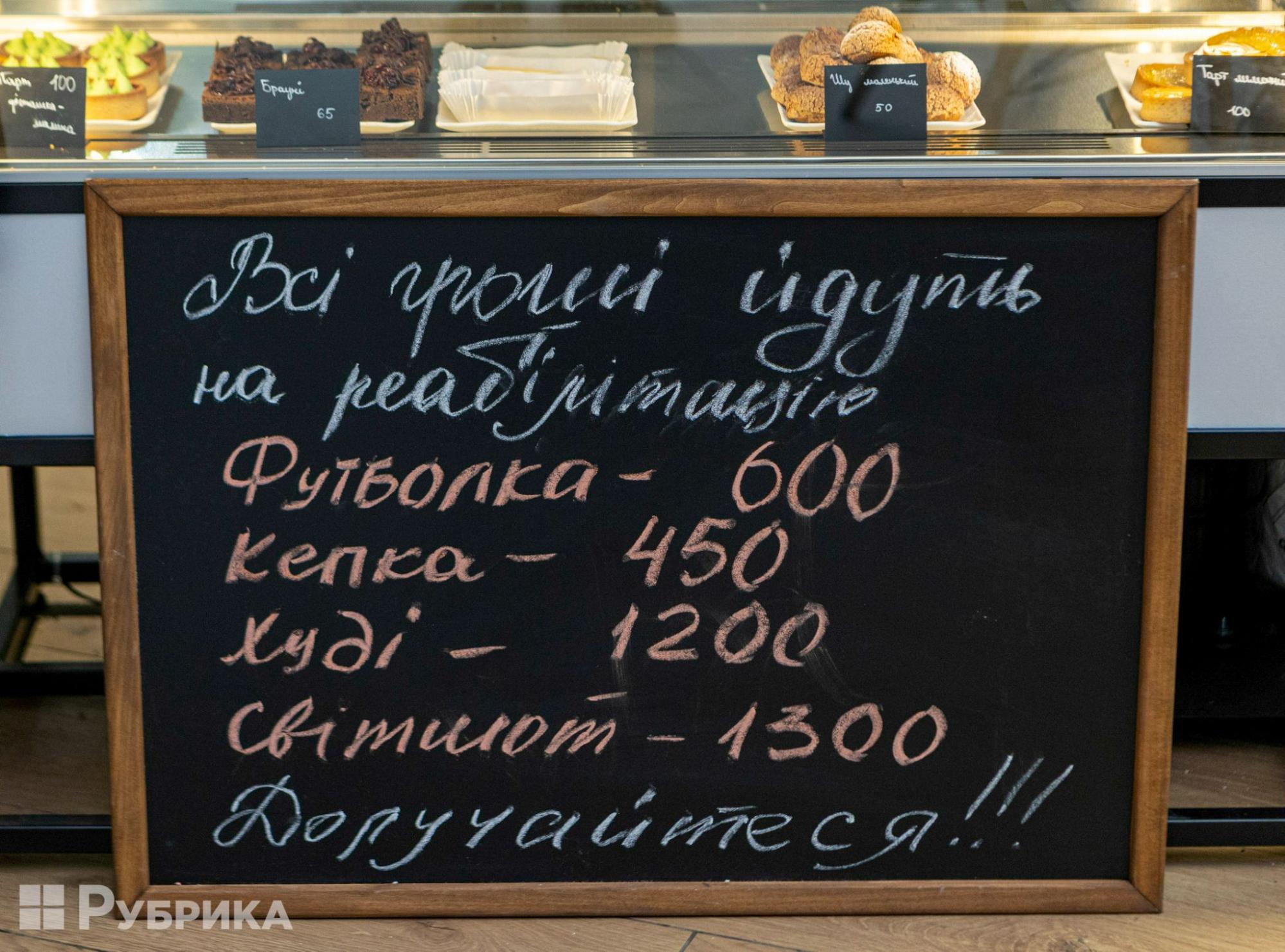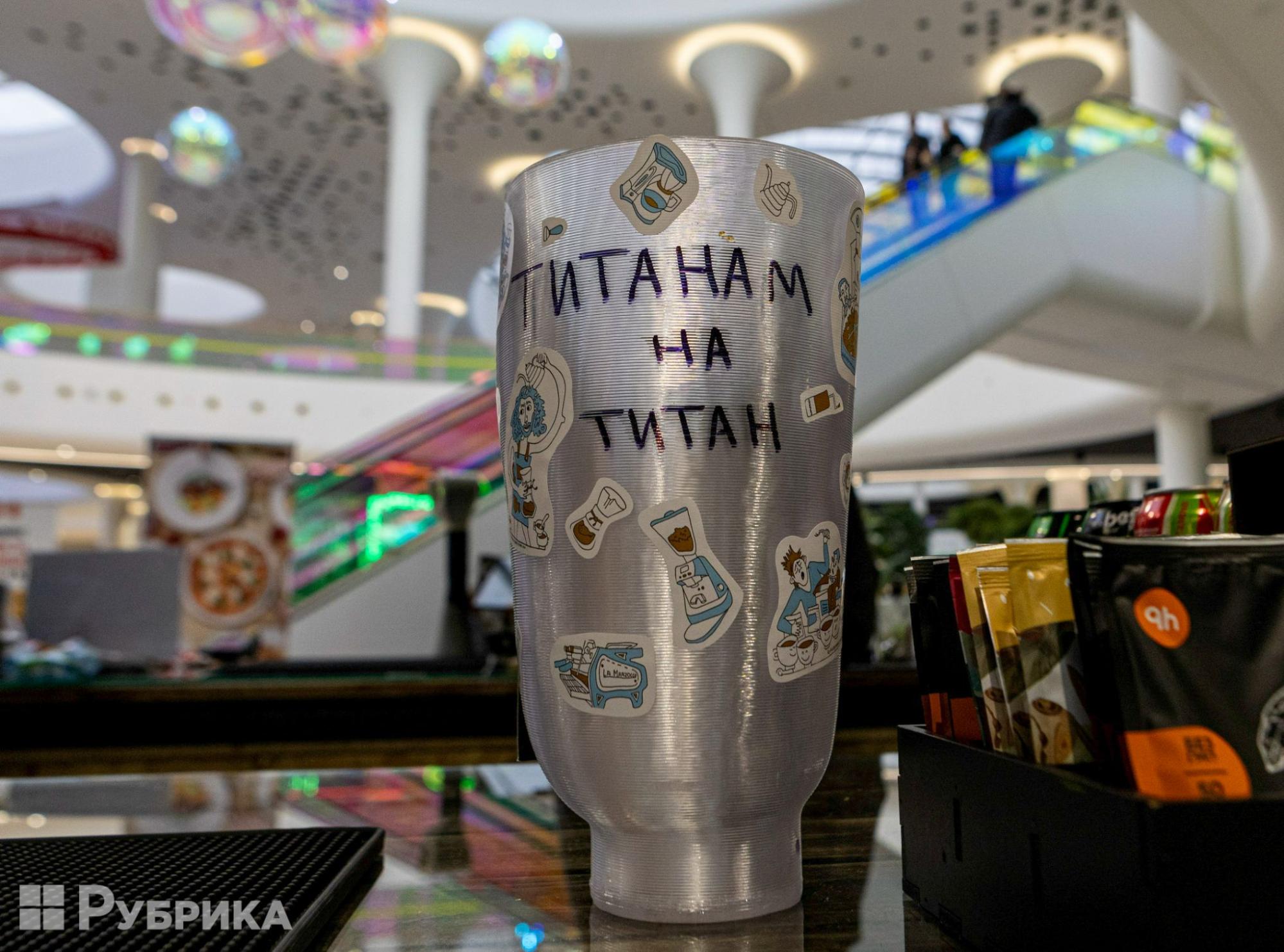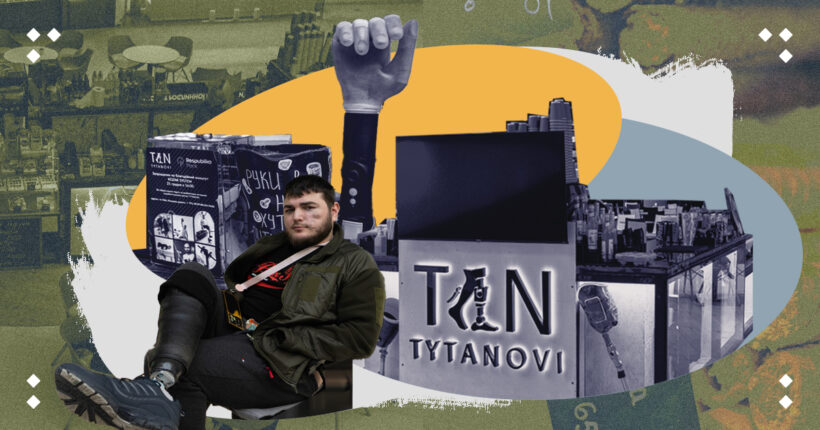
What is the problem?
Fedir Samborskyi is 30 years old—a veteran, a disabled person, a pensioner, and an individual entrepreneur. "In short, I have a lot of titles," he says with a smile. Before the full-scale war, he worked as a food technologist, specializing in confectionery and flour products.
He was at home in Kyiv region's Irpin when the full-scale invasion began. On the morning of February 24, he rushed to secure the plant where he worked. By the time he returned home in the evening, the sound of machine-gun fire filled the air. "I went to join the territorial defense, but they told me, 'There are no more weapons. Help where you can.' So that's what I did," Samborskyi recalls.
He managed to leave the city on March 5 and spent two days traveling to Ivano-Frankivsk, where his relatives lived. On March 8, he went to the military registration and enlistment office. By March 10, he was already stationed with a military unit in Mykolaiv, where he became a sapper.
"Half of our brigade was captured at Azovstal plant, so for the first year, we weren't engaged in combat. Then came Kherson, Donbas, Zaporizhzhia, and back to Kherson. That's where I was wounded, on November 24, 2023," the veteran says. "I'm only 30, yet I've been a pensioner for over a year. Eventually, I'll receive a pension of about 20,000. But is that enough for a decent life, for treatment and rehabilitation?"
Samborskyi was injured during a combat mission. He was preparing to launch a drone but never got the chance—an enemy FPV drone exploded right in front of him. The blast tore off his leg, severely damaged both arms, and affected his eyesight. His treatment lasted nine months, followed by rehabilitation and prosthetics.
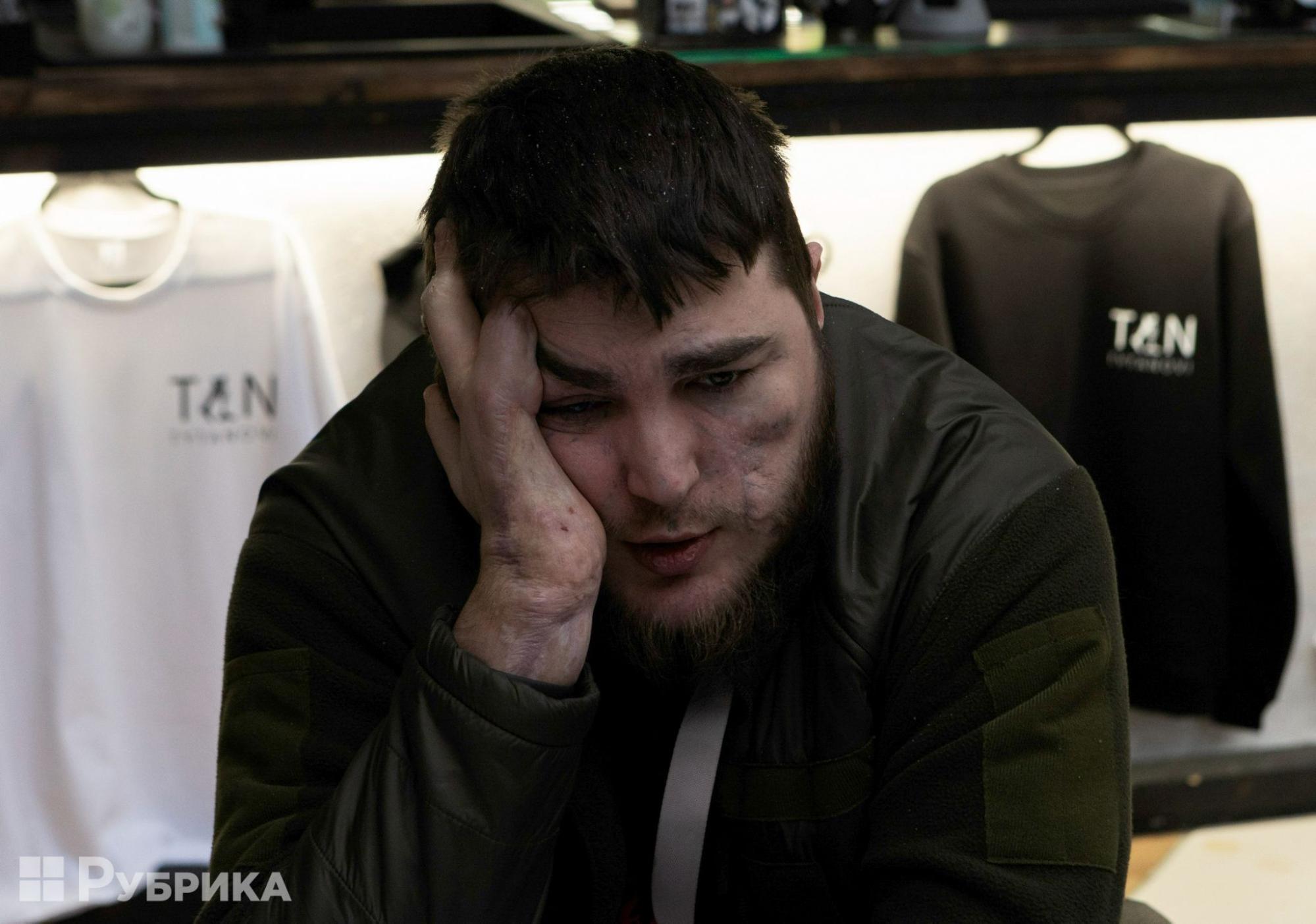
Fedir Samborskyi
What is the solution?
Samborskyi chose to get his prosthetic at the TYTANOVI center, a Ukrainian facility specializing in prosthetics and rehabilitation for veterans. Initially, he was only supposed to receive a prosthetic for his right hand. However, after meeting the center's founder, Viacheslav Zaporozhets, he was advised to replace his left-hand prosthetic as well.
During the prosthetic fitting process, Samborskyi and Zaporozhets got to know each other. Seeing his drive, Zaporozhets invited Samborskyi to join the center's team. The veteran accepted and soon began organizing charity concerts, fundraising events, and supporting fellow veterans.
Later, Zaporozhets suggested another idea—opening a coffee shop as a way to raise additional funds for the center. Together, they reached out to the management of Respublika Park, a major shopping mall in Kyiv, who welcomed the initiative. As a result, on December 13, 2024, the TYTANOVI veteran-run coffee shop officially opened in the mall.
"Part of the funding came from TYTANOVI. I also had some savings, along with compensation for my injuries and combat service. So I covered the cost of supplies and equipment. I scraped together what I could, and that's how we managed to open this café," says Samborskyi.
How does it work?
The coffee shop has now been open for over a month, but the veteran says the journey to launching it was anything but easy. "I didn't open it—I tortured it into existence." He recalls that when starting a business, problems can arise at every step—even with something as simple as buying a cash register.
"I bought a cash register, a terminal, a tablet—everything as required. We set it all up, but it wouldn't work. Why? No one knew. And on top of that, we somehow lost the keys to the cash drawer during installation. We called technicians, searched for the key, and tried every possible way to open it. The whole ordeal took three days. Imagine—something so small took three days! But that's business. You can't anticipate every little issue. You just have to push through," he says.
Samborskyi's vision problems, caused by his injuries, also made the process more challenging. While he waits for an eye operation, his mother helps him with bookkeeping and paperwork.
Despite all the obstacles, the coffee shop is now up and running. But it's more than just a place to grab a coffee and dessert—it's a space that supports veterans and raises awareness about their struggles.
"First, all military personnel and veterans get free coffee. Second, 50% of our profits go to the prosthetic center. Plus, we have a donation jar where we collect additional funds for rehabilitation," Fedir explains.
He also hopes to hire other veterans, understanding firsthand that a military pension alone isn't enough to live on. "That's why I keep pushing for more veterans to start their own businesses—we need more of them." However, he acknowledges a challenge: most veterans who would want to work with him are still focused on their rehabilitation and recovery, making it difficult to find available candidates.
The TYTANOVI café supports veterans in more ways than just financially. It has become a hub that helps them transition back into civilian life. Veterans can gather here after participating in social activities like going to the movies, playing basketball, or attending concerts. Samborskyi also helps fellow veterans start their own businesses.
"When you're in the hospital for a long time, it starts to take a toll on you physically and mentally. You start to lose hope. Rehabilitation and getting a prosthesis is also a tough process. That's why I try to bring the guys here, to help them socialize. The problem is real—many veterans withdraw into themselves. And we can't escape it. In fact, it will only grow because we have over a million people in the military," says the veteran.
He does this not only to directly help veterans but also to raise awareness of their struggles.
"Most people either ignore veterans or, on the other hand, show excessive concern. And the latter can be even more frustrating. Taking care of a veteran means asking if they need help—and whether they want it at all. You shouldn't impose yourself," Samborskyi explains.
He shares this message when he talks to visitors, discussing the challenges veterans face. He emphasizes that he never starts these conversations himself—he doesn't want to push anyone to talk about things they're not ready to discuss. He understands that people have their own issues to deal with.
"I think these conversations are helpful. Not everyone understands right away, but at least some people begin to get it. It's actually easier to talk to children—they seem to understand everything right away," he reflects.
Looking ahead, Samborskyi is preparing to open another business soon.
"I've almost got everything running smoothly at the café, so I get bored," the veteran laughs. He plans to open a bakery so that the café can sell his own cakes instead of store-bought ones. While the desserts are good now, Samborskyi strives for perfection—"and only I will make them," he says. He also intends to turn the café into a franchise, allowing other veterans to open similar businesses.
"I want this café to keep making a difference. And not just for me. This isn't about making a little extra money for retirement. No! It's about helping—helping through donations for the prosthetic center, helping veterans reintegrate into civilian life, and helping people understand the struggles veterans face," says the veteran.




